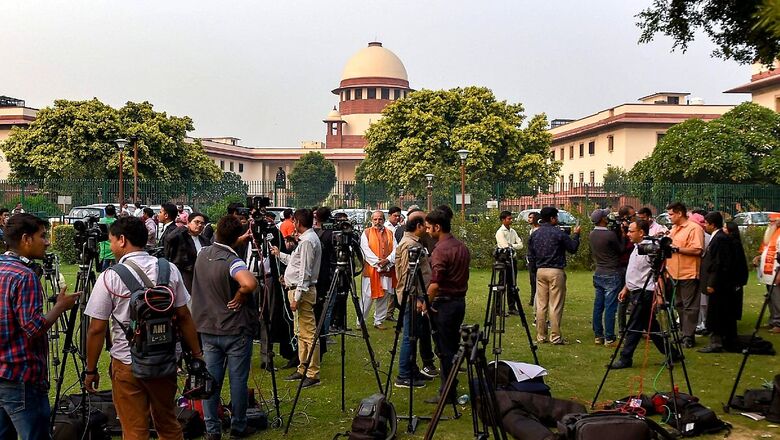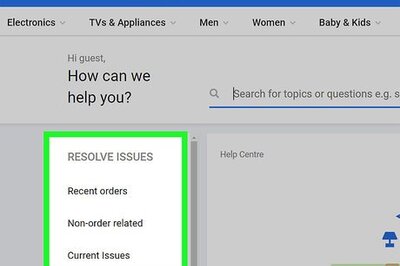
views
The Maratha community cannot be put on par with marginalized sections of the society living in far-flung and remote areas, said the Supreme Court on Wednesday as it restrained the Maharashtra government from implementing a special quota for Marathas in public jobs and education.
The court’s formal order, which was released on Thursday, has held that the Maharashtra government has prima facie failed in making out a special case for the Maratha community that could enable it to breach the ceiling of 50 percent reservation in government jobs and education.
Referring to the law laid down by the nine-judge bench of the Supreme Court in the 1992 Indira Sawhney case, the court said that reservation under Article 16(4) of the Constitution cannot go beyond 50 percent but for exceptional reasons. The court noted that the exception to the 50 percent rule has to be in favour of people living in far-flung and remote areas who are still unable to join the mainstream of national life.
“In view of the conditions peculiar to them they are entitled to be given relaxation. It was made clear (in Indira Sawhney case) that extreme caution has to be exercised and a special case made out for relaxation of the rule of 50 percent,” noted the three-judge bench headed by Justice L Nageswara Rao.
Applying the law laid down by this court in Indra Sawhney’s case, the bench held that it was of the prima facie opinion that the State of Maharashtra has not shown any extraordinary situation for providing reservations to Marathas in excess of 50 percent.
“Maratha community which comprises 30 percent of the population in the State of Maharashtra cannot be compared to marginalized sections of the society living in far-flung and remote areas. The State has failed to make out a special case for providing reservation in excess of 50 percent. Neither has any caution been exercised by the State in doing so,” it held.
It also found flaws in the Bombay High Court judgment, which had upheld the reservation for the Maratha community but brought down the quota from 16 percent to 12-13 percent.
The top court said the reasons cited by the high court in affirming the reservation exceeding 50 per cent in Maharashtra did not follow the ratio of the 1992 judgment.
“The social, educational and economic backwardness of a community, existence of quantifiable data relating to inadequacy of representation of the community in public services and deprivation of the benefits flowing from reservations to the community are not exceptional circumstances for providing reservations in excess of 50 per cent. We are of the prima facie opinion that the High Court committed an error in treating the above factors as circumstances which are extraordinary, warranting relaxation of the strict rule of 50 per cent,” said the bench in its order.
It also pointed out that with these prima facie findings, the state cannot be allowed to implement the quota for Marathas under the Socially and Educationally Backward Classes Act since it will cause irreparable loss to the candidates belonging to the open category.
“It will be difficult to cancel the admissions made in the educational institutions and appointments made to the public posts by implementing the reservations as per the Act,” maintained the bench as it ordered that the quota meant for Marathas in public jobs and education will not be implemented till the matter is finally decided.
Since the issues involved in the clutch of petitions challenging the quota related to interpretation of various constitutional provisions, the bench referred them to the Chief Justice of India for setting up a larger bench of five-judges or more.
















Comments
0 comment